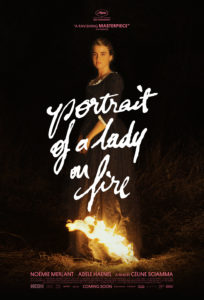The walk to the outhouse was some thirty yards—across the bare back yard, past a fishpond filled in with sand after a turkey had drowned there, and through a gate at the garden fence—to a little unpainted hut behind two salt cedar trees. It was quiet inside, the murk tempered by sun slanting in between weathered boards. The hush was lovely—breezes outside cocooning the silence inside. When I was seven years old, I discovered solitude there. And the pleasure of staring. At men. In lieu of toilet paper, our outhouse was stocked with last year’s mail order catalogs, with pages of men’s underwear for me to hover over. I was several years shy of learning about sex—from a Roman Catholic booklet so primly informative that I pictured two fully clothed adults just returned from Sunday Mass, facing each other in straight-backed dining chairs and holding hands while some kind of mystical transference occurred between their covered laps. Though I had been to confession, I hadn’t yet discovered that my body could be an instrument of sin, of shame. Somehow, I had absorbed the need for privacy, for keeping the secret of my mail order fascination.
All posts tagged: 2019
Nora
An excerpt from The Other Americans by LAILA LALAMI

My father was killed on a spring night four years ago, while I sat in the corner booth of a new bistro in Oakland. Whenever I think about that moment, these two contradictory images come to me: my father struggling for breath on the cracked asphalt, and me drinking champagne with my roommate, Margo. We were celebrating because Margo had received a grant from the Jerome Foundation to work on a new chamber piece, her second big commission that year. We’d ordered steamed mussels and shared an entrée and lingered late into the night. The waiter was trying to convince us to get the chocolate mousse for dessert when my phone rang.
Saudade

The voluptuousness of misery
—Machado de Assis
In Itaparica, the beach broods
under ruddy sky. Two fishermen
and I search waves spitting
shells: ribbed green, a crown
for a queen; a conch; an obelisk;
a whorled shell; a thin swell
pink modica of a disc.
Ask a Local: Glenn Diaz, Manila, The Philippines
With GLENN DIAZ

Plaza Lacson in Sta Cruz, Manila. Photo by Glenn Diaz
Name: Glenn Diaz
Current city or town: Manila, The Philippines
How long have you lived here: 30 years
Three words to describe the climate: Hot, humid, often-dystopic
Best time of year to visit? Probably beginning October, when the amihan (trade winds) arrives, to March just before the onset of summer.
December 2019 Poetry Feature: New Poems for the Holiday Season
New poetry by ADAM SCHEFFLER and MEGAN PINTO
Table of Contents:
Adam Scheffler, “Checkout”
Megan Pinto, “Faith”
CHECKOUT
A poem can’t tell you what it’s like
to be 83 and seven hours deep
into a Christmas Eve shift
at Walmart, cajoling
beeps from objects like the secret
name each of us will never
be sweetly called, can’t show
you her face and eyes like the
night sky, or the white-haired
man wearing reindeer horns,
mumbling into his collar’s
static-y radio-gadget; a poem
can only mention her eyes,
shocking blue, like desert
pools, the red & white of her
Santa hat, or take note of the
little carts carrying each beached
customer to the doom of their
product; but a poem can place
this curse upon the Waltons:
that they be given her job
manning the conveyer as it
rattles its barren Torah through
miles of product, or be given a list
of every item they sell, and be
made to wander like Israelites
back and forth through their
endless stores until they find them,
until their heads and toes grow
lighter, and Christmas music
lifts and carries them & lifts
and carries them, like each
one is a burst suitcase of
money blizzarding open.
Portrait of a Lady on Fire: A Review
Movie directed by CÉLINE SCIAMMA
Review by HANNAH GERSEN

In 1770, Brittany, France, a young female painter, Marianne, is hired to paint a wedding portrait of a noblewoman. But the assignment is unusual: she must make the painting in secret because the bride, Héloïse, is reluctant to marry. Héloïse and her mother live in an isolated seaside estate, and her mother explains to the young painter that the portrait is necessary to entice the bridegroom, who lives in Milan. Héloïse (Adèle Haenel) is arrestingly beautiful, and I can imagine many movies that might begin with the groom’s approving gaze upon receiving Héloïse’s portrait, kicking off a storyline that would take viewers into Milanese high society. But Portrait of a Lady on Fire instead focuses on the two weeks that Héloïse and Marianne spend together in a nearly empty house by the sea (the bridegroom in question never appears on screen). Written and directed by French filmmaker Céline Sciamma, and with a nearly all-female cast, Portrait is both a romantic story of two people falling in love, and a sensitive depiction of a female painter’s life and artistic practice in the eighteenth century.
Following My Daughter’s Fitting for a Prosthetic Eye

Miami, FL
“I am fascinated by the beauty of sight,
but I never crave for it,” a blind actor says,
brushing his fingers across the petals of flowers
in a softly lit bazaar. The camera tracks
from his hand to his grey-tinged hair
as a market breeze circles his linen shirt
and bamboo chimes patter the air.
Immigrants in Years 2070, 2081, and 2097 Must Furnish the Following Documents
Two poems by FISTON MWANZA MUJILA
Translated from the French by J. BRET MANEY
Translator’s Note
As xenophobic arguments about merit-based immigration and “migrant caravans” intensify in the US, and as desperate boatloads of refugees cross the Mediterranean, poetry of (im)migration and border-crossing plays a crucial role in bearing witness and resistance.
The House on Altamount Road
By DIANE MEHTA
Rain pelted down onto Altamount Road below, the delicate en pointe technique of a thousand ballerinas rumbling across a stage. Earlier, the sun had exploded into full bloom for an hour, after which rain clouds shuffled in again. I was resting on a single bed as mid-afternoon light filtered through the darkening clouds and cast the sky in an impressionistic purple-gray hue. In this unfamiliar guest room with its pomegranate-velvet Victorian sofa, I listened to the soft violence of the monsoon shower through the flung-open windows. The same sound had been a steady backbeat to my childhood years in Bombay. Then, just as quickly as the rain shower had come, it disappeared.
The Common’s 2019 Pushcart Prize Nominations
It’s that time of year again: below are The Common’s nominations for the annual Pushcart Prize! The Pushcart Prize celebrates outstanding works of literature produced by small-press writers; each of our nominations are exceptional works of art that dare to take fresh and impactful perspectives on what it means to have a unique sense of place.











